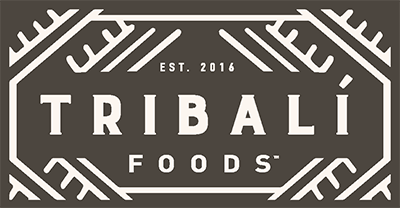
Imagine enjoying a delicious breakfast, full of flavor, and remaining satiated until a late lunch, or even dinner. Imagine how many other things you could spend your time thinking about other than food! Imagine not having the unbearable urge to pick at the donuts in the office or buy a pack of chips from the vending machine. Imagine not always having thoughts about the pint of ice cream in your freezer looming in the back of your head.
If this seems impossible and unrealistic, read on because you may not be eating enough fat and you’ll need all the information shared in this article.
Fatty acid deficiency is epidemic, and it can lead to musculoskeletal, hormone, cardiovascular, immune, allergy, skin, and mood issues. Fats are also the precursors to hormones, and if you don’t have the precursors you can’t make hormones, leading to hormonal imbalance and endocrine dysfunction. Basically, this means a fatty acid deficiency can cause irritability, insufficient sex hormones, low libido, dull skin, hair loss, brain fog, and energy dips.
Fats:
- Increase satiety
- Make food delicious
- Help regulate appetite
- Help your body properly use protein
- Offer a protective lining for the organs of the body
- Slow the absorption of food and create lasting energy
- Are building blocks for cell membranes and hormones
- Are necessary in the absorption of vitamins A, D, E, and K
How did we get here? What caused us to unfairly fear fat?
In the 1980s, the United States Department of Agriculture (USDA) advised Americans to eat less fat and more grains. Dietary fat is needed for many reasons. Not only is the removal of fat detrimental to our health, but the removal of fat has prompted the excessive addition of sugar. Low-fat and fat-free foods are not quite palatable, so sugar must be added to make up for the lack of taste. 1
You need fats for your immune system, hormones (the body cannot make hormones without fat), thyroid, skin, mucous membranes, and absorption of fat-soluble vitamins (vitamins A, D, E, K). By eliminating fat from the diet, you not only eliminate many sources of these vitamins, but you lose the ability to absorb and utilize them.
Meals that are higher in carbohydrates and lower in fat and protein cause insulin to spike, which results in a quick drop in blood sugar. Carbohydrates, especially refined carbohydrates, are very quickly absorbed and spike sugar production. Imbalanced blood sugar levels contribute to fatigue, weight gain, hormonal imbalances, and adrenal issues. But adding fat to meals slows absorption of carbohydrates and keeps blood sugar levels stable!
You need essential fatty acids to live. One reason for an essential fatty acid deficiency is a low-fat diet, but another main cause of essential fatty acid deficiency is the consumption of hydrogenated and partially-hydrogenated oils. Hydrogenation, which creates trans fats, changes the chemistry of fats and oils, making them unusable by the body. Trans fats prevent essential fatty acids from being utilized because they tie up the enzymes needed for their metabolism. Your cells are largely made up of fat, so when you consume poor quality fats your body is being damaged on a cellular level. It is not uncommon to crave fried food or snacks because the body is craving essential fatty acids, but when you consume fried foods it “gums up” your system and creates a greater deficiency than if the fried food was never consumed. A deficiency in essential fatty acids causes the body to run on carbohydrates and sugar, which also causes appetite to become uncontrollable.
Fat causes cholecystokinin, or CCK, to be produced in the duodenum, or the first part of your small intestine. CCK is responsible for signaling the hypothalamus to register satiation and fullness. Your hypothalamus tells your body you have had enough food and you are full. If you are on a low-fat diet, you are lacking this hormone signaling, which is likely causing you to overeat. Without enough fat in in your diet, your hypothalamus never receives the “stop eating” signal.
However, not all fats are created equal. A diet high in quality fats is encouraged, but a diet high in poor quality fats is not. So what should you look for if you want to decrease the amount of poor quality fats you consume, and increase your intake of high quality, nutrient rich fats?
Poor quality fats that deteriorate your health include trans fats, hydrogenated fats, partially-hydrogenated fats, highly processed vegetable oils, and fried fats. Think soybean oil, corn oil, cottonseed oil, rapeseed oil, canola oil, margarine, and sunflower seed oil. These fats are man-made, chemically altered fats that are not considered an actual food. Our bodies do not know how to deal with these fats, and we do not have the mechanisms to digest them. Trans fats cause essential fatty acid deficiencies, and they tend to remain in the body for long periods of time. It takes three to four months for the body to decrease in half the level of a recently ingested trans fat.
Sources of healthy, quality fats include avocados, olive oil, nuts, seeds, cold water fish, grass-fed meat, tallow, lard, coconut, palm oil, butter, and ghee.
Eliminate the poor quality fats, load up on the healthy fats, and watch your mood and energy levels skyrocket, and your sugar cravings plummet!
1 Fotheringham, J. (n.d.). Big Fat Lies. Retrieved February 12, 2019, from http://www.bigfatlies.info/

HELLO@TRIBALIFOODS.COM >
your mind — we’re glad to help!
hello@tribalifoods.com
your mind — we’re glad to help!
hello@tribalifoods.com








